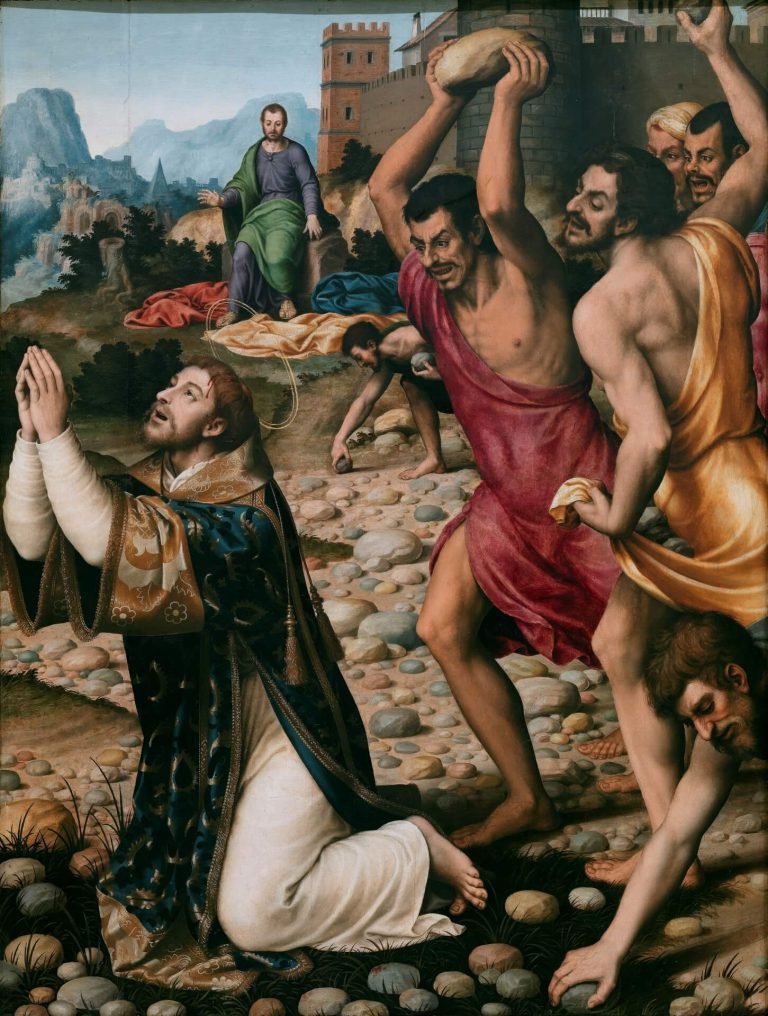
English Version
In Acts of the Apostles (8:1-8), we see the events after the tragic death of Saint Stephen, even before Paul's conversion.
Soon after the death of the saint, with the exception of the apostles, the members of the Jerusalem Church were dispersed throughout Judea because of the persecution against the Nazarenes (early Christians) that was occurring at that time.
Some pious people buried poor Saint Stephen, stoned for his faith. Meanwhile, Saul, who had previously supported the execution of Saint Stephen (Acts 8:1), now invaded homes to arrest early Christians, taking men and women to prison (Acts 8:3), something that Paul himself regrets. later giving his testimony to others (Acts 22:1-20).
Despite the repression and persecution, nothing was enough to stop the newly converted people, quite the contrary, it only ignited their faith even more, who continued to preach the word, even under oaths of death. The dispersed began to go everywhere, preaching the word of God and forgiving sins, as told by Christ to do so (John 20:22-23), and spreading the Christian faith even further, not only throughout Judea, but throughout the vastness of the Roman Empire. This movement bore fruit in Greece, where many of the Church's fathers emerged, but it also increased the persecution of the religious elite of the time, from the Roman Empire, and, later, generated Gnosticism. But that's a story for another day.
The biblical narrative continues talking about the apostle Philip, a preacher, and the crowds who followed him, largely because of his miracles and preaching, curing illnesses, casting out demons and bringing the Gospel to the people. This is a promise of hope and salvation made by Christ to all humanity and presented to the Gentiles by priests, apostles and anyone who is willing to present Christ to their neighbor.
This is my analysis of the text. I hope you enjoy.

Versão em Português
Em Atos dos Apóstolos (8:1-8), vemos os eventos posteriores ao trágico falecimento de Santo Estevão, ainda antes da conversão de Paulo.
Logo após o falecimento do santo, com exceção dos apóstolos os membros da Igreja de Jerusalém foram dispersos pela Judeia por causa da perseguição contra os nazarenos (cristãos primitivos) que ocorria naquela época.
Algumas pessoas piedosas enterraram o coitado do Santo Estevão, apedrejado por sua fé. Enquanto isto, Saulo, que anteriormente havia apoiado a execução de Santo Estevão (Atos 8:1), agora invadia casas para prender os cristãos primitivos, levando homens e mulheres à prisão (Atos 8:3), coisa que o próprio Paulo se arrepende posteriormente, dando seu testemunho a outros (Atos 22:1-20).
Apesar da repressão e da perseguição, nada foi o bastante para parar os recém convertidos, muito pelo contrário, apenas acendeu ainda mais a fé dos mesmos, que continuaram a pregar a palavra, mesmo sob juras de morte. Os dispersos passaram a ir a todos os lugares, pregando a palavra de Deus e perdoando os pecados, como dito por Cristo para o fazerem (João 20:22-23), e alastrando ainda mais a fé cristã, não apenas pela Judeia, mas por toda a vastidão do Império Romano. Tal movimento rendeu frutos na Grécia, onde surgiram muitos dos pais da Igreja, mas também aumentou a perseguição da elite religiosa da época, do Império Romano, e, posteriormente, veio a gerar o gnosticismo. Mas isso é história para outro dia.
A narrativa bíblica segue falando do apóstolo Filipe, um pregador, e as multidões que o seguiam, muito por conta de seus milagres e pregações, curando doenças, expulsando demônios e levando o Evangelho ao povo. Esta é uma promessa de esperança e salvação feita por Cristo a toda a humanidade e apresentada aos gentios pelos sacerdotes, apóstolos e por todo aquele que estiver disposto a apresentar Cristo a seu próximo.
Esta é minha análise sobre o texto. Espero que goste.
Obrigado por promover a Língua Portuguesa em suas postagens.
Vamos seguir fortalecendo a comunidade lusófona dentro da Hive.